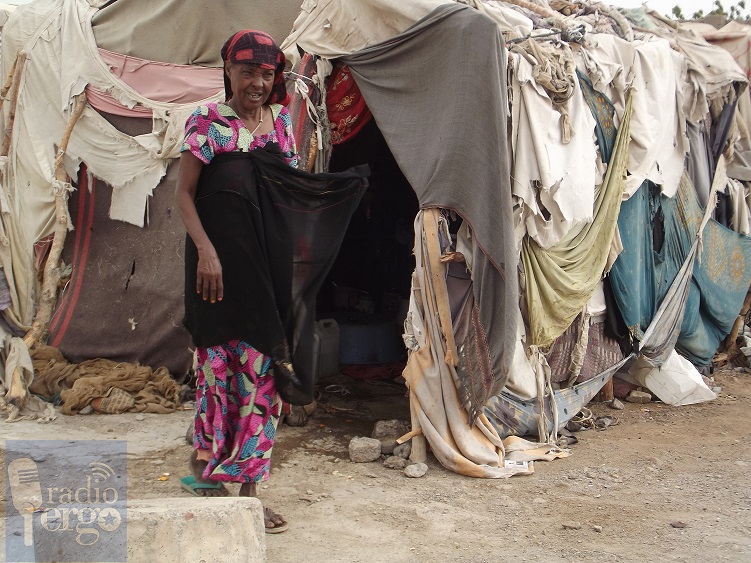Displaced Bakool families walk to Luq town

(ERGO) 18 January, 2016: Several hundred people facing food and water shortages in besieged parts of Bakool region have joined camps for the displaced in Luq, Gedo region, after walking for around a week.
Around 175 farming and pastoralist families are reported to have arrived in five existing IDP camps in Luq over the past three weeks.
They include large numbers of women, children and elderly people. They came from Wajid, Hudur and Elboon in Bakool hoping to find assistance in the camps.
Faduma Haji Abdullahi and her 10 children arrived in Luq from Wajid last week after five days of walking. “On our way, the children became very weak. They were almost dying of hunger and thirst,” Faduma told Radio Ergo. She said they were farmers who had suffered from severe water shortage.
Is’haq Ibrahim Ahmed, a pastoralist from one of the remote parts of Hudur district, said his livestock had died because the pasture had completely disappeared. “We have walked for eight days to get here,” he said. “We came here to get help from aid organizations, but we have not yet been assisted.”
He said they were facing a lack of food and water in the camps as well.
Those arriving in Luq avoided the main roads linking Bakool to other regions because of blockades by Al-Shabaab. As few could afford to pay the fare charged by the rare vehicles using the back routes through the bush, they either went on foot or used donkey carts.
Adan Deeq, a committee member in the IDP camps, told Radio Ergo there were 90 newly arrived families from Wajid, 50 from Hudur, and 35 from Elboon Village. “Presently, they are being hosted by the other families who were already living in these IDP camps,” he said. He added that there were no regular deliveries of food aid in the camps and supplies were short.
The new arrivals have joined more than 3,000 other families displaced by conflict and droughts in different parts of Gedo, Bay and Bakool regions. They have been living in the five IDP camps for up to four years.
Source: Ergo